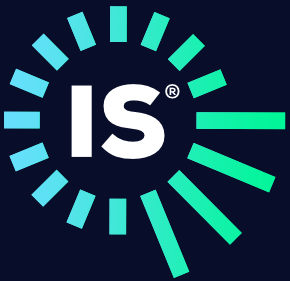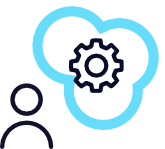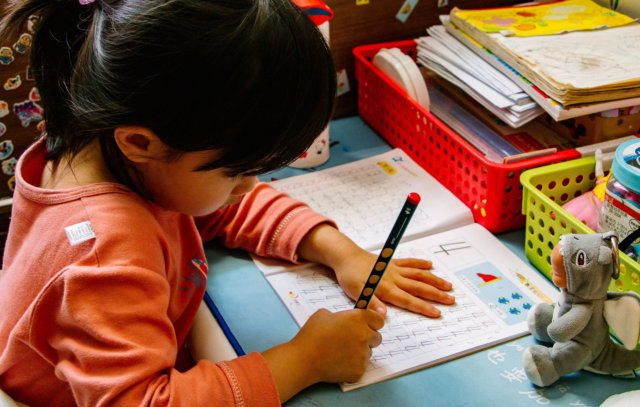
Innovation Spectrum
The Innovation Spectrum is Educate’s framework for supporting schools to build meaningful
and equitable teaching and learning practices. The nine focus areas are codified from our research base and field experience.
Deeper Thinking and Learning

Higher order thinking
Learners are exploring concepts by explaining and applying information, breaking concepts into parts and exploring relationships, evaluating information, justifying their stances, and synthesizing information from multiple sources to create original work.

Authentic learning
Content, teaching practices, and learning processes are based on studentcentered, real-world context, represent authentic, discipline-specific practices and processes, and lead to the creation of products for real-world audiences.

Co-creation of knowledge
Teachers effectively facilitate discussions and activities in which learners are incorporating their own ideas and misconceptions to create knowledge.

Metacognition
Learners are aware of and advocate for their learning strengths and needs. They routinely reflect on their learning experiences and apply insights to subsequent situations.
Case Study

Setting the Stage for Sustainable Educational Transformation
Dedicated educators strive to enhance teaching and learning, but the method of change matters. This case reveals how Educate’s coaching approach drives short-term shifts aligned with long-term vision. Coach Reggie collaborated with Principal Ms. Qualls to set near-term goals, leveraging metacognition. Their partnership fosters collaboration, overcomes isolation, and aligns practices for sustained growth. Strategies like number talks promote metacognitive skills, preparing students for inquiry-based learning.
Student Agency and Individualization

Student choice
Learners are actively exploring concepts that they find challenging and interesting. Learners are consistently empowered to determine how they will reach learning objectives.

Differentiation
Learners are consistently provided with scaffolding. Teachers consistently differentiate the processes and products of learning based on individual needs.

Collaboration
Partnering and instructional groups effectively support the learning objective, and they are varied appropriately, with lots of opportunity for student choice. Students collaborate smoothly within groups.
Case Study

Empowering Through Partnership: Fostering Collaborative Classrooms
Miriam, an Educate coach, collaborated with teachers Ms. Sheehan and Ms. Addo to enhance collaboration in the classroom. By refining protocols and fostering independent problem-solving, they empowered students to engage confidently. This case study exemplifies how Educate’s coaching approach can transform learning dynamics, promoting self-efficacy and productive struggle meaningful change.
Supportive and Collaborative School Culture

Technology integration
Learning experiences are transformed through the use of technology, and learners become confident digital citizens.

Collaborative school community
Members of the school community consistently collaborate in innovative ways, within the school and with other organizations and the broader community.
Case Study

Empowering Educators and Students: A Case Study in Collaborative Learning
This case study highlights the power of collaboration through Educate’s coaching approach in K-12 classrooms,emphasizing an agentive collective and constructivist learning.
Download our Innovation Spectrum chart
Outcomes

